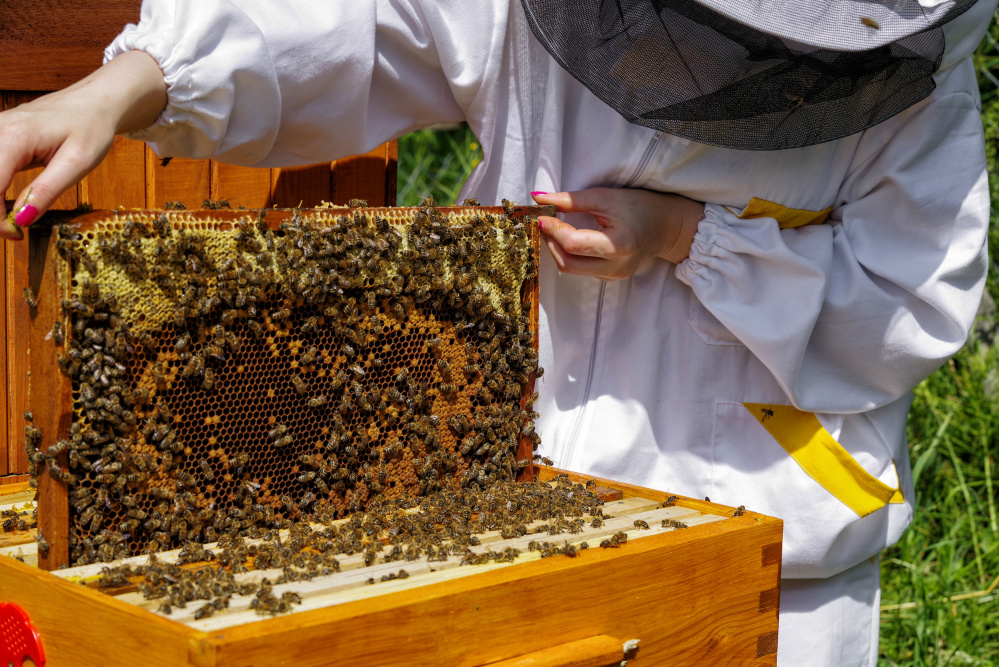AUSTIN, Texas — Honeybees usually take winters off. But when it’s 50 degrees and sunny, the bees are flying – and dying faster.
Beekeeper Blake Shook raises bees commercially in the Collin County town of Blue Ridge. The 27-year-old has been beekeeping since he was 13. He’s seen firsthand the decline in the insects’ health since 2006, when the great bee die-off from Colony Collapse Disorder was first reported.
“It’s hard to get the crops pollinated in the United States, and that’s getting worse and worse,” Shook said. “Unfortunately, I don’t think most folks will pay attention until we start running out of food. As soon as we can’t get almonds anymore, that’s when they’ll start noticing.”
Every year, billions of bees are sent to almond farms in California to pollinate the trees. Without them, almond production would take a nosedive.
The U.S. bee industry lost 44 percent of its bees from 2015 to 2016 and 40 percent the year before that. This year, there were reports from south-central Texas of honeybees waking up early in January, when temperatures rose higher than usual, according to Agrilife Today, a Texas A&M agriculture publication. Whenever bees look for food and can’t find any, they end up eating stored honey and wear their bodies out faster.
“We certainly are not having any cold weather to speak of,” Shook said. “In the D-FW area, it’s shaping up to be a warm winter that isn’t good for the bees.”
While beekeepers have developed methods to restore the numbers lost during the winter, it’s not a perfect system. At the current industry rate, bees will not reproduce at a fast enough rate to keep up with demand, Shook said.
So the Texas Beekeepers Association plans to urge lawmakers to protect major nectar sources for bees so the bees can thrive. Shook, a board member, said the group has other ideas in the works, such as trying to get a honeybee license plate to fund research and lobbying during the 2019 legislative session to update the bees and honey chapter of the Agricultural Code.
Texas takes a relatively hands-off approach with the beekeeping industry. The bees and honey chapter in the Agricultural Code hasn’t been updated since the 1990s. The most recent legislative action regarding honeybees came in 2015, when the Texas Legislature exempted small honey producers from needing a “honey house” for inspection and a state license to operate
Send questions/comments to the editors.



Success. Please wait for the page to reload. If the page does not reload within 5 seconds, please refresh the page.
Enter your email and password to access comments.
Hi, to comment on stories you must . This profile is in addition to your subscription and website login.
Already have a commenting profile? .
Invalid username/password.
Please check your email to confirm and complete your registration.
Only subscribers are eligible to post comments. Please subscribe or login first for digital access. Here’s why.
Use the form below to reset your password. When you've submitted your account email, we will send an email with a reset code.